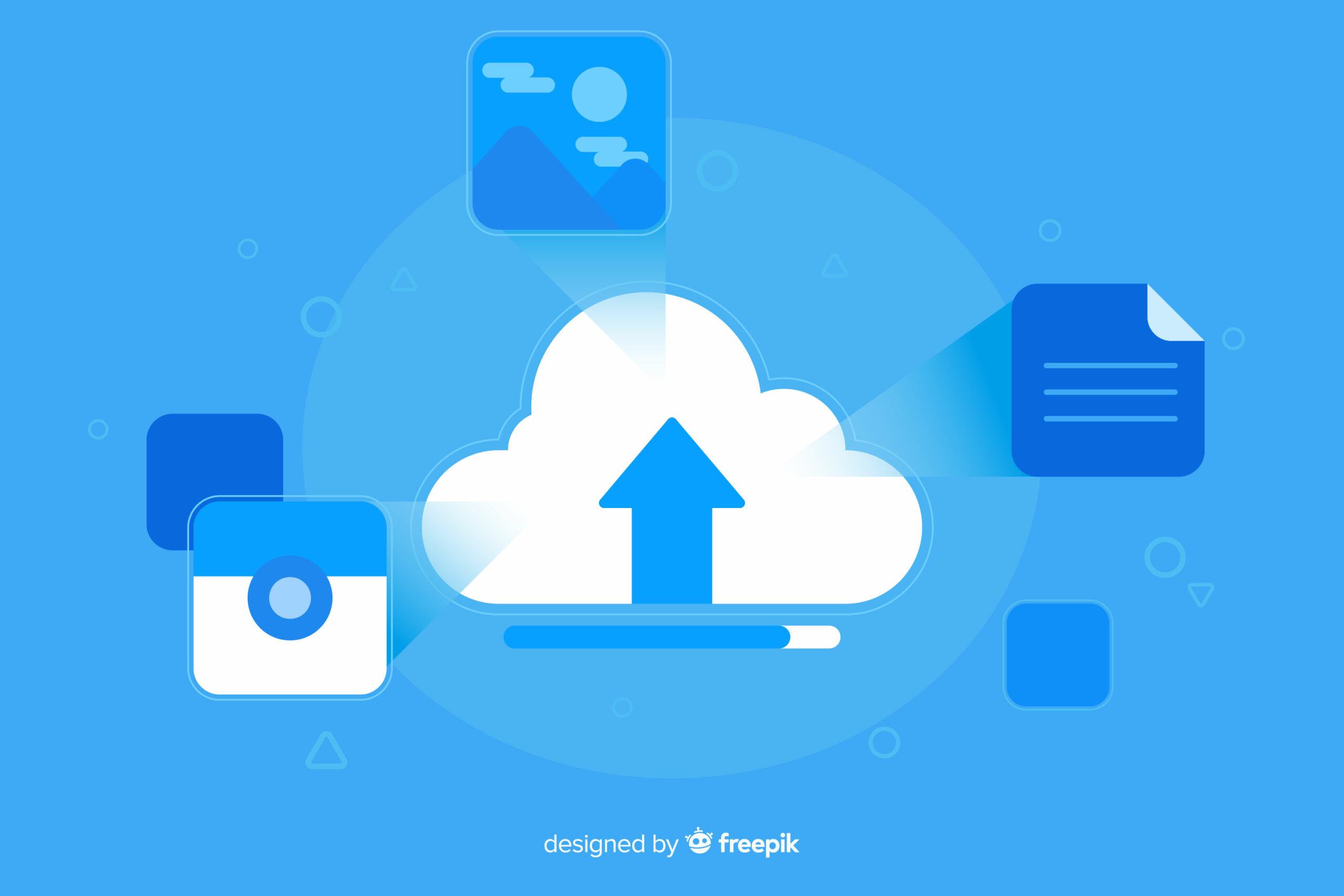Many businesses have been a part of cloud transformation, which lays the foundation for improved IT strategy, business continuity, and even digital transformation. There are many benefits of Azure migration, as it assists businesses in increasing their scalability, security, and cost-effectiveness.
Many organizations choose an Azure-based migration even though there are several providers to consider when planning a cloud migration. We will discuss the main advantages of moving to Azure in this blog article and how it may assist businesses in achieving their objectives.
Top 12 Benefits Of Azure Cloud Migration
The most incredible option for cloud migration is Microsoft Azure. It is a trustworthy and dependable choice for businesses moving their database to the cloud. The top 12 benefits of Azure migration to fulfill your business goals are given below:
1. Azure – the top-rated platform
Microsoft provides a great option for cloud migration. By offering cutting-edge services like Infrastructure as a Service (IaaS), Platform as a Service (PaaS), and Software as a Service (SaaS), the Azure cloud has generated a sizable profit.
All the significant services provide outclass scalability, performance, and controls for large-scale corporations and startup businesses. Additionally, IT departments are confident and convinced that their investment in the platform will maintain their position as the market leader.
For detailed guidelines on migration, refer to our blog: 10-Step Azure Migration Checklist.
2. Increased Scalability
Azure’s scalability is undoubtedly an asset. This scalability guarantees that Microsoft Cloud Engineers may confidently plan and closely supervise their migration and modernization. The pandemic has demonstrated how unpredictable the world is, but Azure can handle more anticipated company restructures and unforeseen requirements.
- Azure scalability can aptly handle traffic spikes. Azure’s auto-scaling feature allows enterprises to automatically scale their resources up or down based on the current demand.
- Many enterprises use a hybrid cloud strategy to maintain their current IT investments’ Return on Investment (ROI). Additionally, hybrid clouds may benefit from industry compatibility by using the 5 Azure Migration tools to kick-start your Hybrid Cloud Journey.
- Azure has various data centers and is a global platform that enables businesses to boost performance by providing easy access to data for clients or businesses.
3. Business Agility & Innovation
Azure allows developers to create in smaller groups and test new ideas with less risk and expense and without relying on the infrastructure team or legacy systems.
Developers may quickly deploy resources, write code, integrate technologies using standards-based APIs, scale their testing as necessary, and even fail multiple times before obtaining results that improve business outcomes.
4. Reduced Maintenance Costs
On-site data storage gear is relatively expensive for your company to build, operate, and maintain over time. With Microsoft Azure, you can move your data, apps, and computational operations to the cloud, eliminating the need for local servers.
- Pay-as-you-go pricing structure: With Azure’s pay-as-you-go pricing structure, businesses only pay for the resources they use rather than needing to make a substantial upfront investment in infrastructure and hardware.
- Reduced hardware costs: By switching to Azure, businesses may save additional cost for infrastructure and hardware requirements. Organizations can use Azure’s virtual machines, storage, and other services in place of needing to buy, install, and operate servers and other hardware.
- Automated maintenance: Azure offers services for automated maintenance that can assist businesses in lowering expenses. For instance, the Azure patch management service may automatically apply security updates and other patches to virtual machines, removing the need to perform all tasks manually.
5. Deployment Flexibility
Applications built on Azure are a good fit for companies with changing or expanding demands. Massive data analysis and spiking traffic on applications that demand instant compute resources during cyclical or unpredictable demand are frequently carried out on elastic cloud systems.
6. Enhanced Security
To protect the datasets of your business, Azure cloud provides built-in security features. Hire Microsoft Azure support engineers to provide specialized plans for cloud security.
New security enhancement features are added to the Azure platform by Microsoft Azure:
- BitLocker-encrypted data stored in storage at rest
- TLS connections that encrypt data while it is in transit
- Utilizing two-factor authentication for remote resource access
7. Remote Accessibility
With Azure, you have 24/7 access to your cloud-based data from anywhere. Its VPN Gateway allows your team members to secure login and access your company’s resources from a distance.
Azure supports both high organizational responsiveness and remote working. Additionally, it provides a 99.99% Service Level Agreement (SLA) and round-the-clock technical assistance to guarantee ongoing operations.
8. Increase the Time To Market Applications
Rapid delivery of new services directly results from faster application release cycles. While conventional platforms may only allow a few application releases per year, Azure’s integrated solutions enable daily upgrades, like serverless computing and mobile DevOps. Gaining or losing market share and competitive advantage may depend on the pace.
The conventional platforms may only allow a few application releases per year, but Azure’s integrated solutions enable daily upgrades. In addition, the variety of Azure services that speed up the software development process helps organizations increase their time to market.
- Azure DevOps Service: A collection of services that can help organizations streamline their software development process.
- Azure Kubernetes Service: A fully managed Kubernetes service that can help various businesses to simplify the deployment and management of their applications
- Azure Container Instances: A set of services that allows organizations to run containers without managing infrastructure.
- Azure Functions: A serverless compute service that allows developers to run code without managing infrastructure.
9. Azure Backup, Recovery, and Failover
In the event of disaster or data loss, Microsoft Azure offers backup, recovery, and failover for physical servers and virtual machines.
It is made to work with a variety of software, hardware, and storage options. For additional security, the service can replicate data across many regions.
10. Microsoft Azure Compliance
The obligation of an entity to adhere to specified conditions or specifications established by law or regulation is known as compliance. Enterprises may create and manage compliance standards and policies using Microsoft Azure services such as HIPAA, PCI-DSS, SOX, etc.
Audit reports, risk assessment reports, and other compliance solutions provided by Azure help enterprises meet the need to comply with all the rules and regulations.
11.Azure Analytics
The benefits of Azure migration do not end here. Azure provides robust analytical and reporting functions that provide insights and platform monitoring. Azure analytics features provide several benefits that include
- Visualize data using Power BI’s dynamic dashboards and reports
- Process and analyze data using a variety of tools and technologies, such as Azure Stream Analytics, Azure Data Lake, and Azure Machine Learning
- Integrate with additional Azure services like Azure IoT and Azure Data bricks for end-to-end analytics solutions.
12.Azure Integrations
A collection of pre-built integrations in Azure also aid in the development of apps and accelerate the software development process. Whereas integrations were far more complex in the past and required longer to construct, the library connectors also enable rapid development, cutting down on development time.
Azure integrations also allow you to use the same identity, management, and security in both on-premises and cloud settings, which can help you streamline your IT environment and boost the effectiveness of your operations.
Can I Perform An Azure Migration Without Disrupting My Current IT Infrastructure?
Microsoft Azure offers advanced tools and services for migration without disrupting the current IT infrastructure. There are two integral methods to perform successful Azure migration.
Methods For Migrating To Azure Without Disruption
Azure Site Recovery (ASR): ASR can help in Azure migration without disrupting your IT infrastructure by allowing you to replicate your on-premises systems to Azure. This allows you to test the migration in a non-production environment and failover to the replicated systems in case of an outage or planned maintenance.
Azure Database Migration Service (DMS): DMS is a service that allows you to migrate your databases to Azure. This service allows you to perform a “lift and shift” migration of your existing databases to Azure without any changes to your application.
Fast-Track Azure Migration With Minimal Disruption
With the help of experienced migration partners, organizations can properly assess, plan and successfully migrate to the cloud. The multi-stage process of Azure migration begins with assessment, planning, code refactoring, and modernization. At each stage, an organization’s choices impact the cloud-hosted application’s cost, performance, reliability, and scalability.
How does an Azure migration differ from other types of migrations?
Azure cloud platform migration and modernization plans are unique for migrating data to Azure cloud. It differs from other types of migrations in several key ways:
Platform-specific
Azure migration is unique to the Azure platform and necessitates familiarity with its tools and services. Other migrations are not platform-specific and instead platform-agnostic.
Automation Services
With a variety of tools and services available, enterprises can easily move their data, applications, and infrastructure to Azure using automation and self-service. While other types of migration will include higher degree of physical labor and/or a different level of automation.
Compliance and Governance
Azure migrations may require compliance and governance considerations that are specific to Azure. Other types of migrations may have different compliance and governance requirements.
Variety of Migration options
Azure offers several migration methods to accommodate diverse migration circumstances. For example, some choices for SQL migration include SQL Server Management Studio, Azure Database Migration Service, Azure Data Studio’s migration extension, and Azure Database Migration Assistant. Some choices for disaster recovery and other migrations include Azure Site Recovery and Azure Migrate.
How Kloudeo can help you with Azure migration?
Whether you want an application or SQL migration to Azure, our migration consultants are always here to help. Do not fear the potential risks or challenges associated with Azure migration; we will assist you throughout the Azure cloud journey.
Focusing on successfully implementing the Azure migration plan, our specialists enable reference architectures for Azure’s IaaS, PaaS, and SaaS platforms. Additionally, we assist various enterprises with sudden traffic spikes without downtime or interruption to their services.
Summing up
Azure migration can help organizations to stay competitive. Azure offers a wide range of services and tools to help businesses stay ahead of the technological curve using advanced technologies. By leveraging Azure migration services, businesses can position themselves for success in the future.
If you want to discuss Azure migration, contact Kloudeo to hire top resources.




